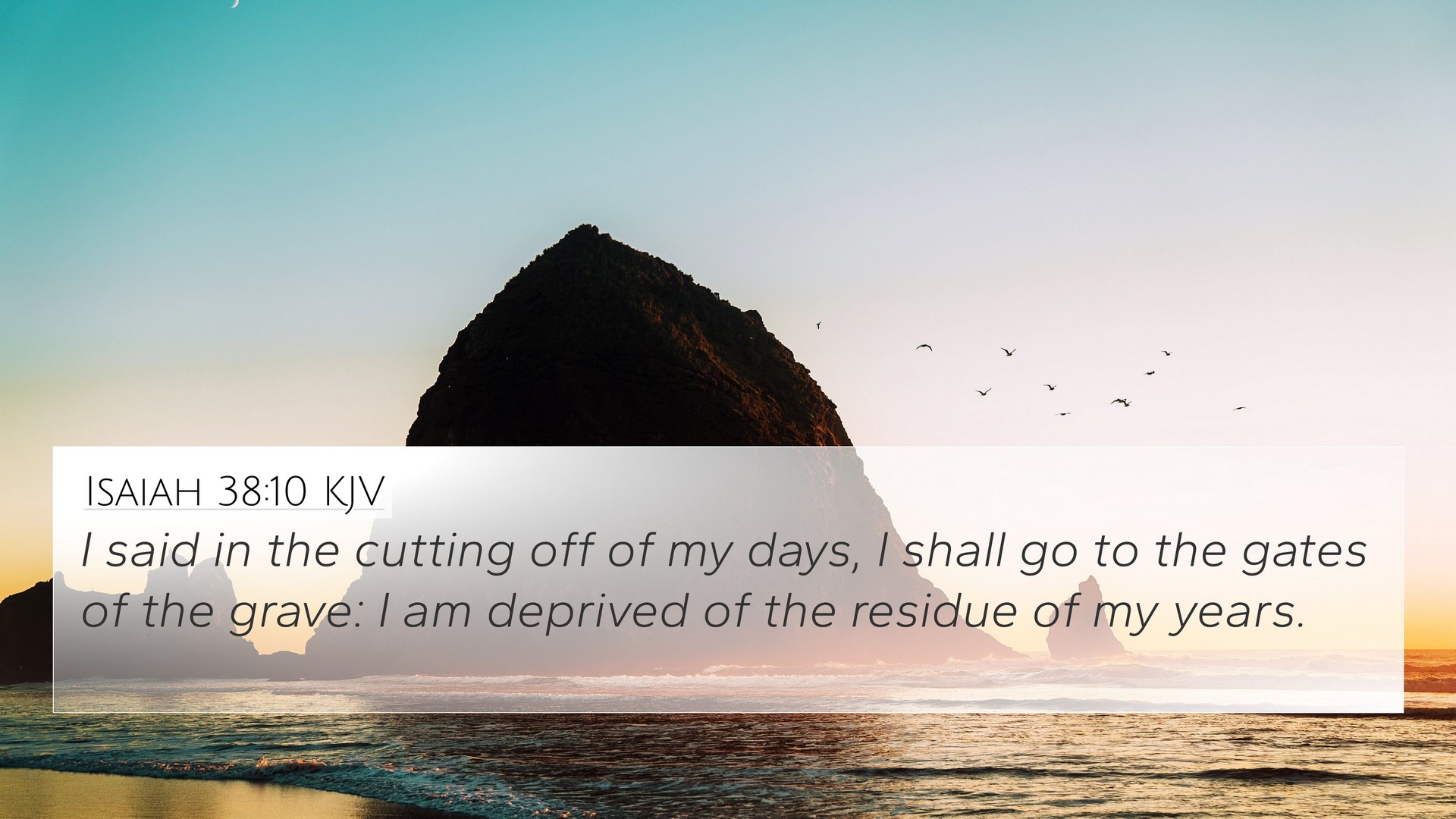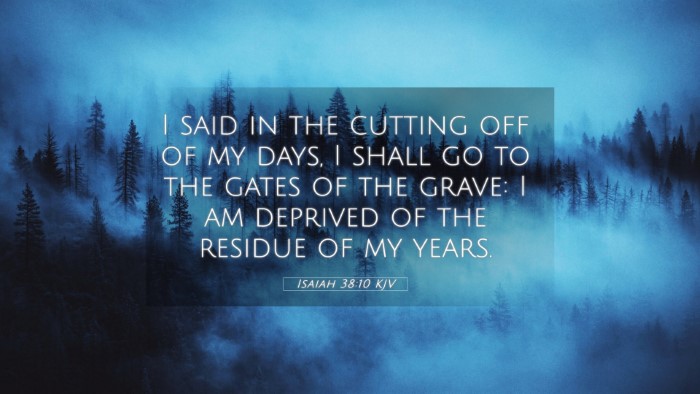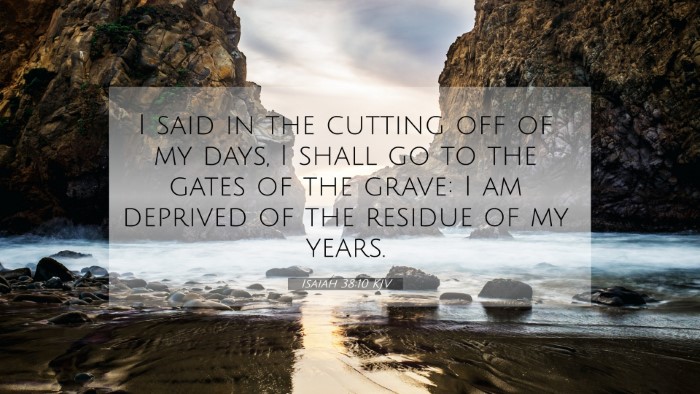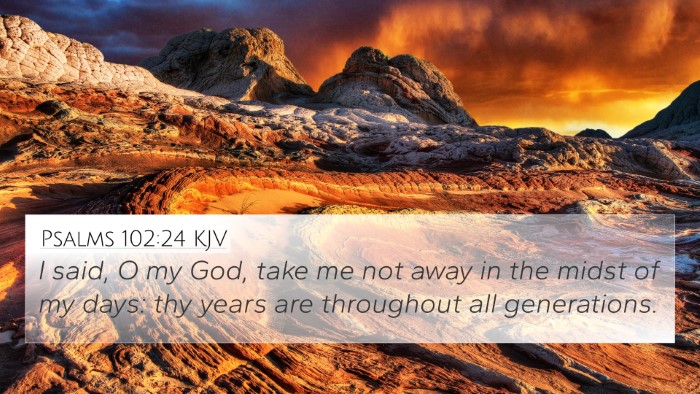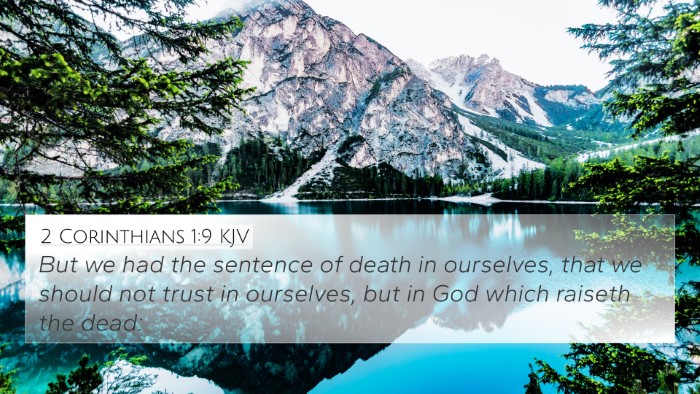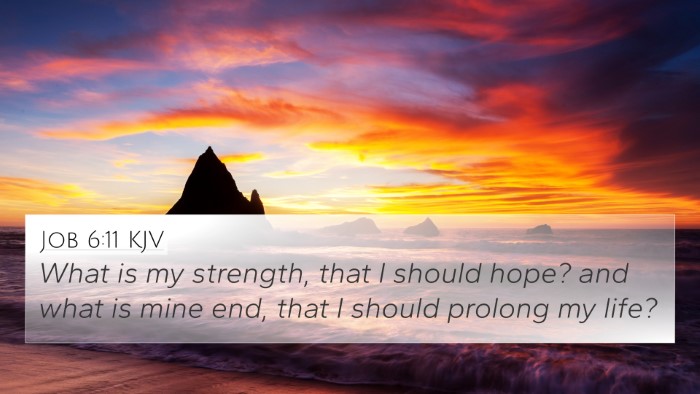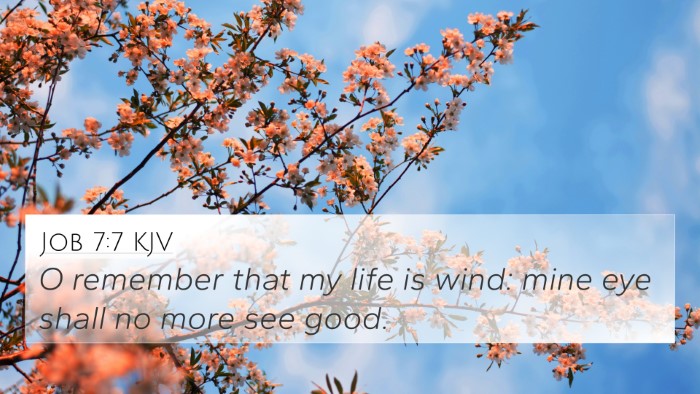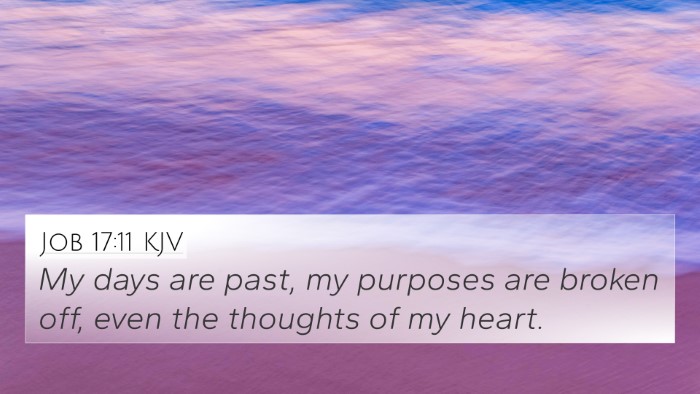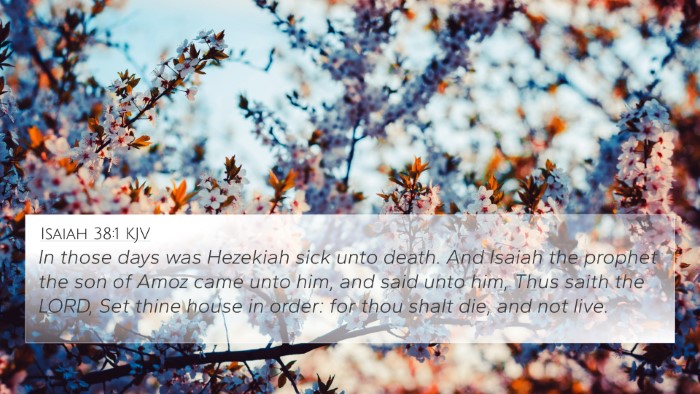Understanding Isaiah 38:10
Isaiah 38:10 states: "I said, In the cutting off of my days I shall go to the gates of the grave: I am deprived of the residue of my years." This verse captures a moment of profound reflection and distress as the prophet Isaiah expresses a sense of impending death and the emotional turmoil that accompanies the thought of mortality.
Summary of the Verse
This verse highlights two significant themes: the brevity of life and the anticipation of approaching death. Isaiah uses vivid imagery to convey his feelings, linking his life’s end with the metaphorical "gates of the grave." His message resonates with the human experience of grappling with the reality of death and what lies beyond.
Insights from Public Domain Commentaries
-
Matthew Henry:
Henry emphasizes the emotional weight of this declaration. He reflects on Isaiah's trials and how the prophet articulates the sorrow of facing death, indicating a sense of loss—not only in life itself but also the unfulfilled expectations that accompany it. Henry notes that such moments can prompt believers to reflect deeply on their lives and their relationship with God.
-
Albert Barnes:
Barnes provides a more theological perspective, underscoring that this despair reflects a larger theme in Scripture—recognition of human frailty and the omnipresence of God's sovereignty. He connects Isaiah's lamentation to the broader biblical narrative of human suffering, emphasizing the importance of divine mercy and hope for restoration.
-
Adam Clarke:
Clarke analyzes the linguistic choices in this verse, explaining that the "gates of the grave" symbolizes an irrevocable transition. He argues that Isaiah’s lament urges the reader to consider the reality of death while also hinting at the potential for future hope and resurrection, a recurring theme throughout the Bible.
Cross-References for Isaiah 38:10
To gain a deeper understanding of Isaiah 38:10, we can explore various Bible verse cross-references that relate to its themes:
- Psalm 39:4-5: "Show me, O Lord, my life's end and the number of my days; let me know how fleeting is my life." This psalm reflects a similar contemplative tone regarding the brevity of life.
- Hebrews 9:27: "Just as people are destined to die once, and after that to face judgment." This New Testament verse emphasizes the certainty of death, much like Isaiah's lament.
- James 4:14: "You are a mist that appears for a little while and then vanishes." This verse echoes the theme of life's transience that Isaiah expresses.
- Ecclesiastes 3:1-2: "There is a time for everything, and a season for every activity under the heavens: a time to be born and a time to die." This illustrates the inevitability of death from a philosophical perspective.
- Isaiah 25:8: "He will swallow up death forever." This verse introduces the theme of hope amid despair, promising future restoration beyond death.
- Romans 14:8: "If we live, we live for the Lord; and if we die, we die for the Lord. So, whether we live or die, we belong to the Lord." This unites life and death under the lordship of Christ, providing comfort akin to what Isaiah seeks.
- 2 Corinthians 5:1: "For we know that if the earthly tent we live in is destroyed, we have a building from God, an eternal house in heaven." This serves as a reassurance of hope in the face of mortality, resonating with the messages in Isaiah.
- Job 14:1-2: "Man born of woman is of few days and full of trouble. He springs up like a flower and withers away; like a fleeting shadow, he does not last." Job's reflections on the brevity of life echo Isaiah's sentiments of despair.
- Revelation 21:4: "He will wipe every tear from their eyes. There will be no more death or mourning or crying or pain, for the old order of things has passed away." This verse proclaims the ultimate hope that death will be overcome, bringing satisfaction to the sorrows expressed by Isaiah.
Thematic Connections
The verse from Isaiah and its cross-references weave a rich tapestry of theological reflections on mortality, hope, and God’s everlasting promise. They illustrate how various books of the Bible converse with one another on the subjects of life, death, and what lies beyond.
Understanding Isaiah 38:10 gives us a clearer view of the emotional depth within scripture and provides practical tools for engaging in cross-referencing Biblical texts. By exploring the environments and contexts of different verses, believers can grasp the interconnectedness of the narrative that the Bible presents.
Conclusion
This exploration of Isaiah 38:10 not only reveals the profound anguish faced by the prophet but also serves as an invitation to engage in deeper study through Bible cross-reference systems. By examining the connections between the scriptures, we can enrich our understanding of life’s purpose, the inevitability of death, and the promise of eternity.
In summary, the thematic connections between Bible verses reflect a unified message of hope despite life's trials. They encourage us to seek understanding in various Bible reference resources, as we study the complex dialogues woven through God’s Word.
